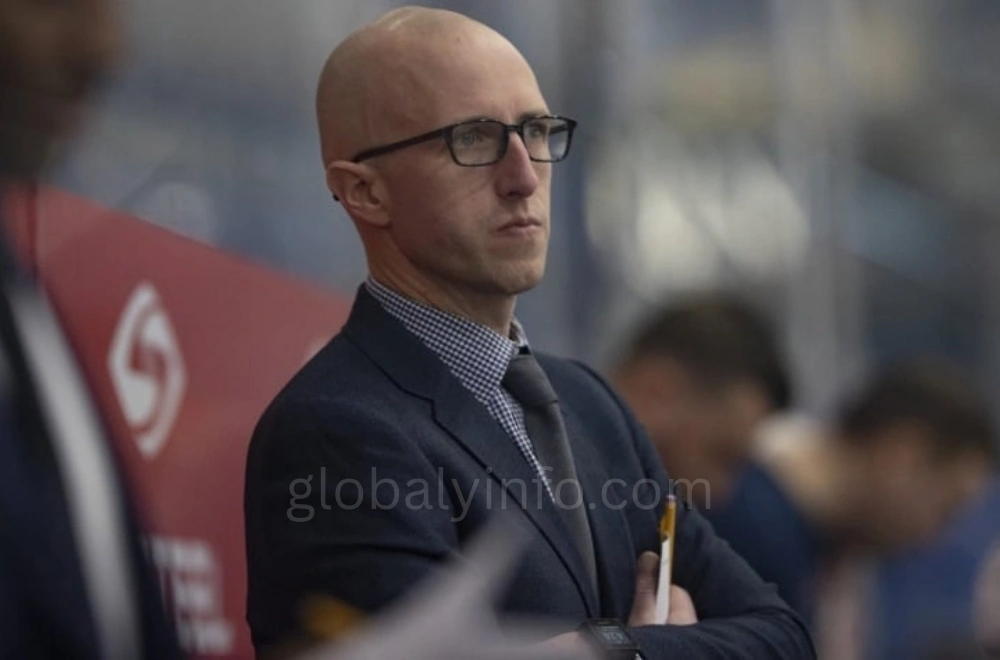The Pittsburgh Penguins have officially announced Dan Muse as their new head coach, marking a fresh chapter for the franchise after parting ways with longtime bench boss Mike Sullivan in April. The decision comes after a thorough search by general manager Kyle Dubas, who believes Muse’s track record of player development and special teams expertise makes him the right leader to guide the Penguins forward.
A New Era in Pittsburgh
The Penguins are entering a pivotal transition phase after missing the playoffs for three consecutive seasons. Despite boasting a core of future Hall of Famers—Sidney Crosby, Evgeni Malkin, and Kris Letang—the team has struggled to recapture its championship form in recent years.
Dubas, who took over as GM in 2023, made the difficult decision to move on from Sullivan, the winningest coach in Penguins history, after the team’s latest postseason absence. Now, Muse steps in as a first-time NHL head coach, tasked with revitalizing a roster that still has championship aspirations but requires retooling.
Why Dan Muse?
Muse, 42, brings a diverse coaching background, having worked at the NCAA, USHL, and NHL levels. His most recent role was as an assistant coach with the New York Rangers (2023-25), where he oversaw the penalty kill—a unit that ranked among the league’s best during his tenure.
Before joining the Rangers, Muse was an assistant with the Nashville Predators (2017-20), further honing his special teams expertise. His coaching journey also includes:
- Head coach of the USHL’s Chicago Steel (2015-17), where he led the team to its first-ever Clark Cup championship in 2017.
- Assistant coach at Yale University (2009-15), helping the Bulldogs win the 2013 NCAA National Championship.
Dubas emphasized Muse’s ability to develop players at all levels and his success in optimizing special teams—a key area where Pittsburgh has struggled in recent years.
“What separated Dan was his ability to develop players, win at all levels where he has been a head coach, and his consistent success coaching special teams in the NHL,” Dubas said in a statement. “From his success in developing college and junior players to his impactful work with veteran NHL players, Dan has shown a proven ability to connect with players at all stages of their careers.”
Challenges Ahead for Muse
Muse inherits a Penguins team in flux. While Crosby, Malkin, and Letang remain foundational pieces, the supporting cast has seen significant turnover. Key challenges include:
1. Revitalizing Special Teams
- Pittsburgh’s penalty kill ranked 15th (77.8%) last season—an area where Muse’s expertise will be crucial.
- The power play, once a dominant force, has declined in efficiency and needs a strategic overhaul.
2. Balancing Veteran Leadership with Youth Development
- The Penguins have begun integrating younger players (Brayden Yager, Owen Pickering) while relying on veterans to remain competitive.
- Muse’s background in player development could prove vital in grooming the next wave of talent.
3. Playoff or Bust?
- Ownership and fans expect a return to contention, but the Eastern Conference is more competitive than ever.
- If the Penguins struggle early, Dubas may face pressure to make roster changes before the trade deadline.
What This Means for the Penguins’ Core
Crosby, 36, remains one of the NHL’s elite players, coming off a 94-point season in 2024-25. However, Malkin (38) and Letang (37) are in the twilight of their careers, raising questions about how much longer this core can compete at a high level.
- Malkin is set to become a free agent in 2026.
- Crosby’s contract expires in 2027.
Muse’s hiring suggests the Penguins are looking for a coach who can maximize the remaining years of their stars while laying the groundwork for the future.
Fan and Analyst Reactions
The reaction to Muse’s hiring has been mixed:
- Supporters point to his success with young players and special teams as reasons for optimism.
- Skeptics wonder if a first-time NHL head coach is the right choice for a team still trying to win now.
Former NHL coach Barry Trotz praised the move, saying:
“Dan’s a sharp hockey mind. He’s paid his dues, and his work with special teams is elite. Pittsburgh’s getting a guy who knows how to win.”
However, some fans have questioned whether the Penguins should have pursued a more experienced coach, such as Joel Quenneville (if reinstated by the NHL) or Bruce Boudreau.
What’s Next for the Penguins?
With Muse now at the helm, Pittsburgh’s front office will focus on:
- Free agency (July 1) – Will Dubas add more depth scoring or defensive help?
- Potential trades – Could a big move (e.g., Jake Guentzel reunion?) be in the works?
- Draft strategy – The Penguins hold a mid-round pick but may look to trade for immediate help.
Final Thoughts
Dan Muse’s hiring signals a new direction for the Penguins—one that balances short-term competitiveness with long-term planning. His ability to connect with veterans while developing young talent will be critical in determining whether Pittsburgh can return to playoff contention in 2025-26.
For now, Penguins fans will wait to see if Muse can bring the same championship pedigree to Pittsburgh that he’s demonstrated at every other stop in his coaching career.
